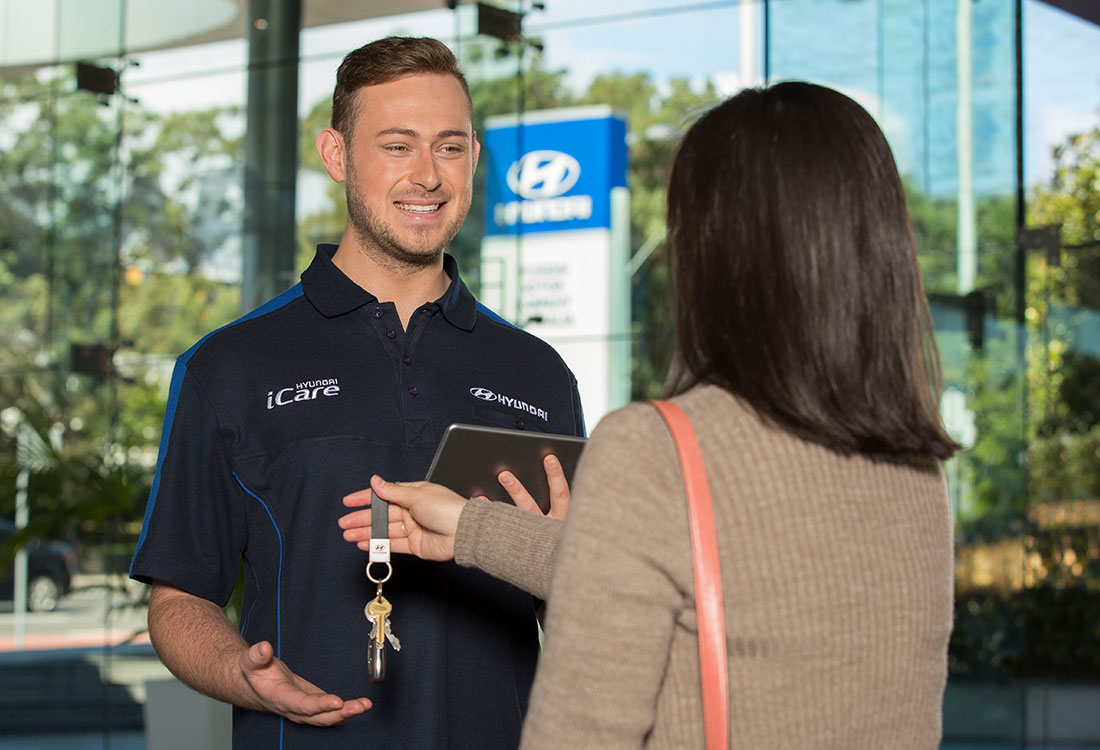
Scott Grant
HYUNDAI Motor Company Australia (HMCA) has stolen a march on the rest of the car industry by signing a remarkable deal with the Australian Competition and Consumer Commission (ACCC) that undertakes to put its owners first in rectifying warranty and out-of-warranty issues and to fully support its dealers to put right faults in its cars.
The agreement, which has been made independently of other car importers, is designed to give Hyundai a first-mover advantage in terms of reputation for reliability and sends a message to Toyota that Hyundai is coming for them as the reliable-vehicle-of-choice in the Australian market.
HMCA says the agreement is a first and has been entered into voluntarily.
A similar agreement with Holden, for example, arose from specific car reliability problems that were pursued by the ACCC, but Hyundai claims that it wanted to go on the front foot with the regulator and sign up voluntarily before all other car companies are forced to do so.
The agreement includes a move to rely less on the strict wording of warranty agreements and more on the terms of the Australian Consumer Law (ACL) where expectations of reliability in such an expensive product as a car become more important to resolving consumer issues.
A key element for dealers in the HMCA contract with the ACCC is that the company has undertaken to pay dealers the total costs they incur for rectifying defects and that the disbursement cannot be altered or qualified by Hyundai in any way.

Rod Sims
And, in a remarkable move, HMCA has undertaken to publish on its website data relating to issues or faults with its different models, in addition to safety recall listings, so that customers owning or buying those models can know what action they might need to take to bring the car up to scratch.
This relates to any technical and safety issues and any fixes available affecting that type of vehicle that HMCA is aware of at the time.
The agreement covers remedies where a vehicle, due to a fault, becomes immobile and is no longer driveable and says that if a vehicle suffers multiple faults within a short period of time those faults are to be grouped as an issue and regarded as a major failure. Remedies include repair, replacement or refunds.
Other terms of the agreement involve time frames for compliance and owner notifications required by the agreement and a clause that requires HMCA to go back 12 months to discover any vehicles in which the company should revisit the way the consumer was treated.
ACCC chairman, Rod Sims, said in a statement that Hyundai had “worked constructively with us and formally committed to improve their systems to comply with consumer guarantees”.
HMCA chief operating officer, Scott Grant, told GoAutoNews Premium that his company was already moving in the direction that the regulator wanted from car companies.
“We have been working on this over the past few years, anyway,” he said.
“For example, we already have an automated system for buy-backs. Our regions can see an issue and recommend it for a buy-back and it captures all the related documents and it arrives in my office for approval in a matter of hours.
“So we have already been investing in our customer interface in many ways.
“As we went on with our discussions with the ACCC and getting a feel for what they were looking for we started to get less and less concerned. We realised that we were already working on and committing to or had in place what the ACCC were trying to achieve.
“So we believed that we could probably meet them halfway on some issues and move forward with other things that were acceptable to all parties.
“It was a pretty good process in the end,” he said.

Mr Grant said there had been no particular issue that brought Hyundai to the attention of the ACCC. He said that the process and the agreement were “completely voluntary” and that the agreement was simply a signal of intent to co-operate in ensuring consumer law compliance.
He said that he believed the ACCC was looking for a first mover in the industry to generate guidelines for car companies “to promote a better way of doing business to produce better outcomes for customers”.
“We were doing many of these things while not publicly showcasing what we were doing beyond our normal business operations. So we felt we might be able to leverage a relationship with the ACCC and work more closely with other stakeholders like our dealers to continue the momentum of what we were already trying to do.”
Mr Grant said that one of the questions that needed to be addressed was to what extent does Australian Consumer Law apply as a consumer remedy for car owners. He said that under the ACL it was not very clearly defined and was open to interpretation.
He said that a manufacturer’s warranty was far more specific in that it defines the parts that are included or not included and gives a time frame or distance limit.
“So the way that warranties have tended to operate in the past is that you would say to a customer, whether they like it or not: ‘Hey, you have a five-year warranty and you are five years and two months, so bad luck’.

“But the ACCC was tending to move to the ACL entitlements which, frankly, have even more grey areas. There maybe a view taken by some that the car should run forever, for example. What is a reasonable expectation of a customer? These are the things that invoke a bit of confusion.
“But, in spite of our warranty policy, we found ourselves paying to support our customers outside of those guidelines in any case by getting customers into alternate vehicles if they have issues and buying cars back if the customers have lost confidence in the car.”
For example Mr Grant said that Hyundai might move a driver into another car who was unsettled by a hesitation in acceleration, even though the hesitation was subsequently fixed, simply to ensure the customer was comfortable with their car.
“We were doing things above and beyond our warranty policy and we were closer to the position that the ACCC was trying to promote in terms of consumer entitlements.
“We decided to move to a position where our warranty becomes less of an issue now and we are really going to embrace the ACL.
“So we are going to be less focused on the warranty policy and more focused on the consumer’s expectation. So aligning ourselves with the ACCC in this way is just a natural extension of where we were going anyway and it adds more momentum to where we were headed.”

Mr Grant said there were still areas like the extent of prior use of a vehicle in arriving at settlements that still had to be addressed by the regulator and discussions along those lines were continuing.
He said the process of dealing with the ACCC had created what amounted to a manifesto within HMCA that “we can all live by and be held accountable. Which is good”.
Mr Grant said Hyundai was comfortable with making the agreement because “we are comfortable with the quality of the product we are seeing (from the factory).
“There is nothing that we are frightened of. We are very enthused by the quality. It is just getting better and better so we have some comfort in the product.
“If we can create a competitive advantage through a timely response when things go wrong and if we can do that better than anyone else then we can get an advantage.
“We are really moving with the tide,” he said.

“We have seen that we need to reposition and look at things differently and rather than work against the regulatory bodies, and there are plenty of them taking an interest in our industry right now, we have to embrace and work within the frameworks of government rather than fight against it.”
Commenting on the posting of technical information on its website, Mr Grant said: “Typically we have all this data internally for our use only. We don’t necessarily hide it but a lot of people want to know about what to expect when they are buying a car and we have nothing to hide.
“So we are going to open it up and put it up there (on the website) and give people some peace of mind. That is where we are going. We are moving beyond what we have to do.
“For example, a second-hand customer might want to make enquiries about whether a particular car was a good model or had issues that may or may not have been addressed. If that helps a second- or third-generation buyer have some comfort with a car then terrific.
“We have put the customer into the middle of all this and we have a responsibility to keep trying to improve the experience of that customer somehow.
“We have to find a way of doing that. It is certainly easier if you have great product, no question, but the real test of whether we are successful or not is when we have a challenging product issue and how we handle customers then.
“That is a challenge we are up for,” Mr Grant said.
By John Mellor













 Read More: Related articles
Read More: Related articles

